Women of wisdom and bravery, these unsung heroines of the Bible have stories that will inspire and surprise you.
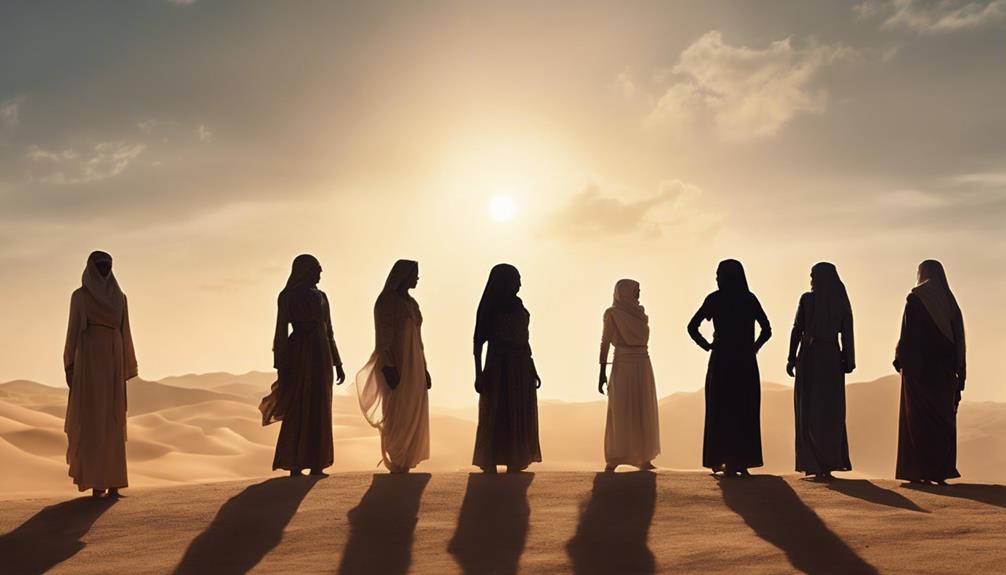
Unknown Women in the Bible
In a book overflowing with male heroes, you might think the Bible sidelines its female characters, but that couldn't be further from the truth. Among its pages hide stories of women whose actions and faith shaped the course of history, yet their names rarely echo in the annals of biblical discussions.
Consider the Daughters of Zelophehad, who championed women's rights, or the Shunammite woman, whose hospitality became her legacy. Their stories, along with those of Pharaoh's Daughter, Jael, and the Widow of Zarephath, offer a treasure trove of wisdom, bravery, and faith.
Uncovering their narratives invites you into a journey of exploration, where each tale promises to reshape your understanding of their roles in biblical history.
Key Takeaways
- Women in the Bible played crucial roles in advocating for rights and challenging societal norms.
- Acts of faith, hospitality, and compassion by biblical women led to significant divine interventions.
- These women's stories highlight the subversion of traditional gender roles and strategic actions in critical situations.
- Their narratives teach lessons on generosity, faith, and the importance of divine provision in overcoming adversities.
The Daughters of Zelophehad
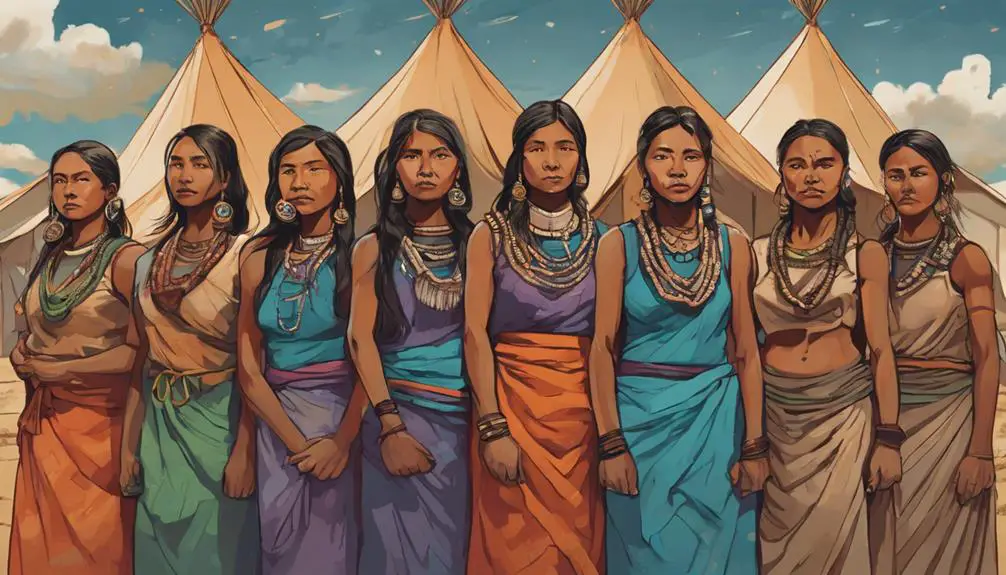
In the biblical narrative, the Daughters of Zelophehad stand out as a remarkable case of women advocating for their inheritance rights within a patrilineal society. You'll find their story a pivotal moment in the discourse on women's rights in ancient texts. It highlights a critical intersection between inheritance laws and gender norms of the time.
Their petition to Moses, as detailed in the Book of Numbers, challenges the prevailing norms that restricted inheritance to male descendants. The daughters' assertiveness in claiming their father's estate not only underscores their determination but also their understanding of the legal system they operated within. It's a testament to their agency in a context that predominantly marginalized women's legal rights.
Moreover, the response to their plea represents a significant shift in inheritance laws. God's directive to Moses to grant them their inheritance rights marks a momentous recognition of women's rights within the biblical legal system. This narrative serves as a critical examination of how ancient texts conceptualized gender and legal rights, offering insights into the evolving nature of inheritance laws and their implications for women's status in society.
The Shunammite Woman
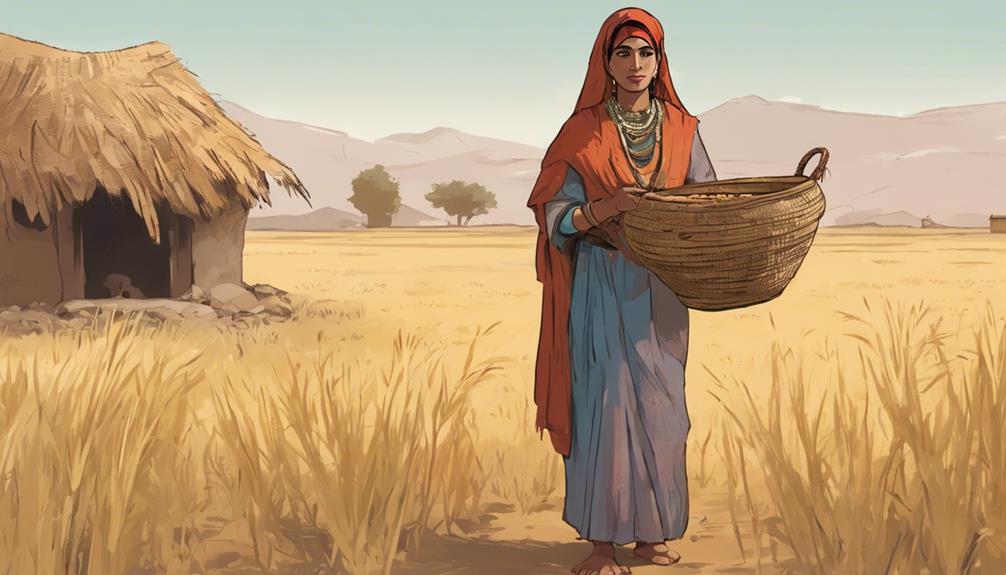
Shifting focus to another significant female figure, the Shunammite woman emerges as a compelling example of faith and hospitality within the biblical narrative. Her story, primarily detailed in the Second Book of Kings, encapsulates the virtues of kindness and belief, offering a nuanced portrayal of feminine strength and resilience. The Shunammite's hospitality towards the prophet Elisha, providing him with food and lodging, sets the stage for a series of miraculous events, underscoring the importance of generosity and faith in the unseen.
Elisha's promise to the Shunammite woman, a child in her later years, further exemplifies the reciprocal nature of faith and divine blessing. This promise, and its miraculous fulfillment, not only highlights the Shunammite woman's unwavering belief in God's power but also Elisha's role as a conduit of divine will. Her subsequent actions, particularly during the resurrection of her son, reflect a profound trust in the divine, illustrating the depth of her faith.
Analyzing the narrative of the Shunammite woman provides valuable insights into the societal and theological contexts of her time. Her story transcends its historical setting, offering timeless lessons on hospitality, faith, and the power of divine intervention.
Pharaoh's Daughter
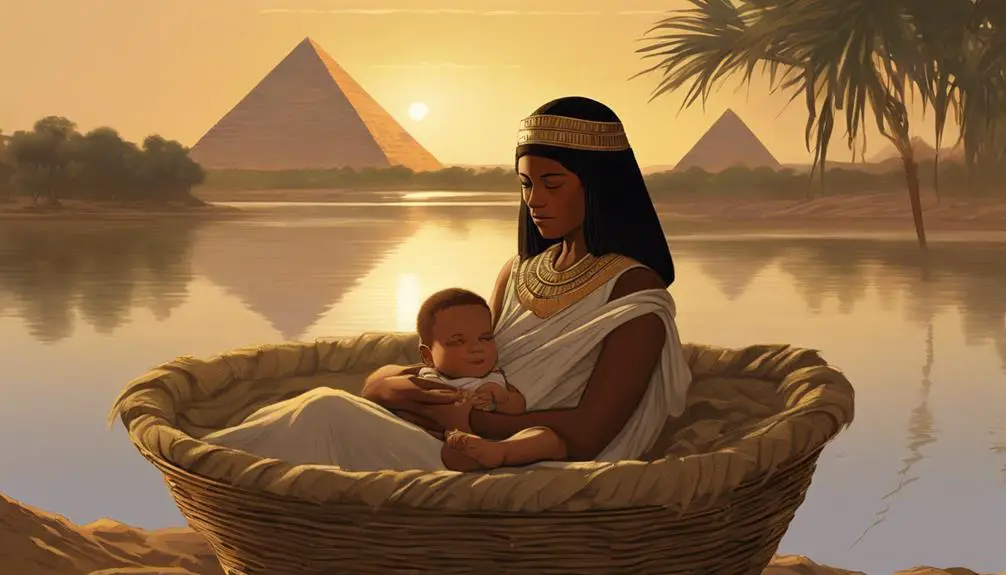
Pharaoh's daughter, a pivotal yet often overlooked figure in biblical narratives, demonstrates the complex interplay of compassion and defiance through her actions. Her decision to adopt Moses, a Hebrew baby, not only showcases adoption compassion but also a remarkable degree of cultural defiance. In a period when her father, the Pharaoh, had decreed the death of all Hebrew male infants, her choice to save and raise Moses as her own was an act of bold resistance against her father's cruel edict.
This act of defiance wasn't merely against familial authority but also against the prevailing cultural norms of her time. By choosing to nurture a child from a persecuted minority, Pharaoh's daughter bridged a vast cultural divide, embodying a profound sense of empathy and moral courage. Her actions provide a striking example of how individual compassion can challenge and transcend societal prejudices and norms.
Moreover, her role in the story of Moses isn't just a footnote. It's a testament to the power of empathy to instigate change. Through her, we see how acts of kindness and rebellion against injustice can have far-reaching implications, shaping the destinies of nations and the course of history.
Jael, the Kenite Woman
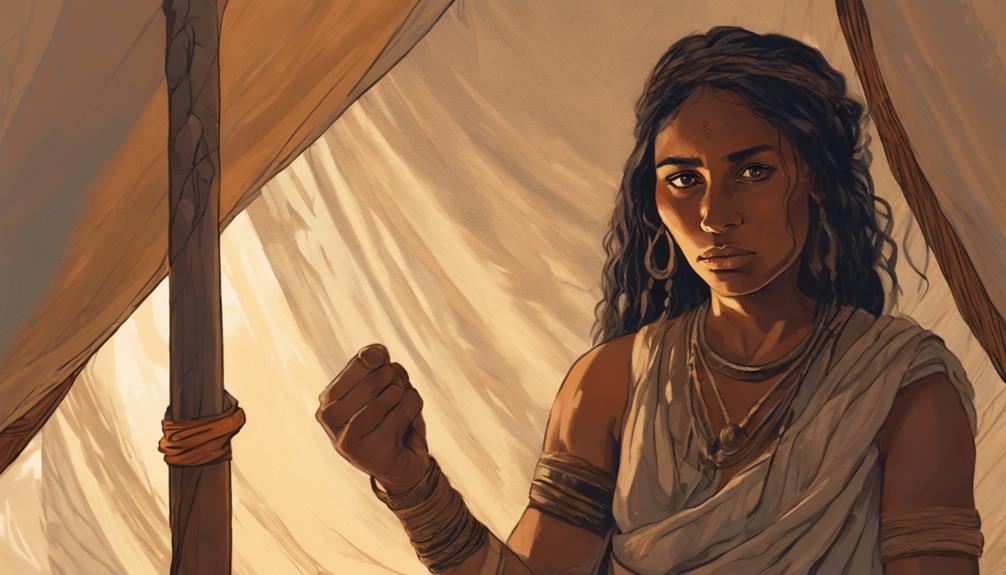
While Pharaoh's daughter's actions underscore the impact of individual compassion against societal norms, another remarkable woman, Jael, the Kenite, epitomizes the embodiment of courage and decisiveness in the biblical narrative. Jael's story unfolds in the Book of Judges, where her strategic use of a tent peg culminates in a pivotal moment for the Israelites.
Jael's narrative is particularly intriguing due to the blend of hospitality nuances and lethal strategy. By inviting the fleeing Canaanite general Sisera into her tent, she navigates the complex expectations of hospitality in ancient times. Yet, her actions transcend mere shelter, revealing a calculated plan for Israel's benefit.
- Tent Peg Strategy: Utilizing a common household object as a weapon, Jael transforms domesticity into a sphere of warfare.
- Hospitality Nuances: Her actions initially suggest refuge but ultimately serve a higher strategic purpose.
- Gender Expectations: Jael subverts traditional gender roles, asserting her influence in a male-dominated context.
- Divine Intervention: Her deed is interpreted as fulfilling a prophetic destiny, aligning with divine will.
- Legacy: Jael's story challenges contemporary readers to reconsider the roles women play in historical narratives.
Jael's account, blending courage with cunning, underscores the multifaceted roles women occupy in biblical tales, often operating within societal constraints to effect significant outcomes.
The Widow of Zarephath
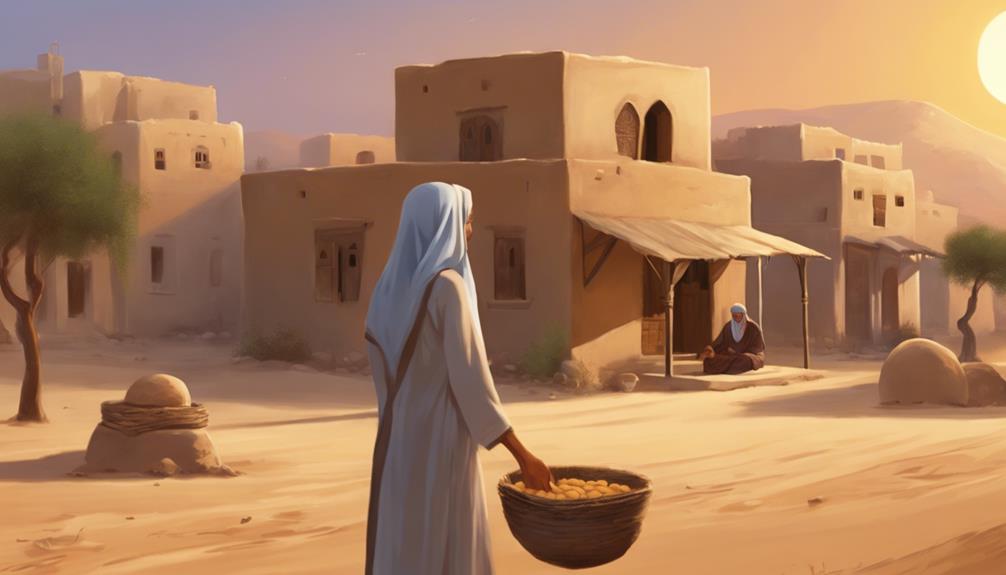
In the narrative of the Widow of Zarephath, we encounter a profound example of faith and survival under dire circumstances, illustrating how individuals can transcend their immediate predicaments through acts of faith and hospitality. The Widow's story, nestled within the broader biblical context, underscores the themes of divine provision and unlikely faith, especially during periods of severe drought and famine.
Theme |
Example from the Widow's Story |
Implication |
|---|---|---|
Divine Provision |
The unending supply of oil and flour |
Faith's role in invoking divine intervention |
Unlikely Faith |
A gentile woman's belief in the God of Israel |
Faith transcends cultural and religious boundaries |
Hospitality |
Sharing her last meal with Elijah |
Acts of kindness can lead to unforeseen blessings |
This woman, at the brink of death, exhibits a remarkable level of trust in the prophet Elijah's God, a deity outside her own cultural and religious experiences. Her willingness to act, despite the uncertainty of her situation, offers a powerful testimony to the strength found in faith and the unexpected ways through which divine provision manifests. Her story, therefore, not only adds depth to our understanding of faith in action but also challenges the reader to reconsider the potential of unlikely faith to yield miraculous outcomes.
Frequently Asked Questions
How Did Societal Norms of the Time Influence the Roles and Recognition of Women in Biblical Narratives, Particularly Those Less Known?
In analyzing how societal norms influenced roles and recognition, you'll find that gender roles and cultural expectations played a significant part. These norms often sidelined women, especially those less known, limiting their narratives within texts.
You'd observe that these constraints were deeply rooted in the societal fabric, affecting their visibility and contributions.
This analysis sheds light on the broader implications of cultural norms on gender representation in historical narratives.
Beyond Their Immediate Stories, What Impact Did These Lesser-Known Women Have on the Development of Biblical Themes and the Progression of the Narrative?
In exploring your question, it's crucial to understand how lesser-known figures contribute to character archetypes and narrative symbolism, shaping the overarching themes.
These individuals often embody moral and ethical lessons, enriching the storyline's depth and complexity. Their roles, though seemingly minor, play pivotal parts in progressing the narrative, offering unique insights and perspectives.
Their impact extends beyond immediate storylines, influencing the development of broader themes and enhancing the narrative's richness.
Are There Any Archaeological or Historical Findings That Provide Additional Insights or Corroborate the Stories of These Lesser-Known Women in the Bible?
Yes, artifact authentication and genealogical research have shed light on the existence and roles of some historical figures. These methods help validate stories, offering tangible connections to the past.
By examining artifacts and conducting detailed genealogical research, scholars gain insights into the lives of these individuals, enhancing our understanding of historical narratives.
This approach not only corroborates certain accounts but also enriches the broader historical context in which these stories unfold.
How Have Interpretations and Perceptions of These Unknown Women in the Bible Evolved in Modern Religious Scholarship and Feminist Biblical Criticism?
In modern religious scholarship and feminist biblical criticism, interpretations and perceptions have significantly evolved. Scholars now scrutinize gendered language and employ diverse interpretive methodologies to uncover deeper meanings. They're challenging traditional narratives and highlighting the roles and contributions of lesser-acknowledged figures, ensuring these women's stories aren't just heard but analyzed with the depth they deserve.
Breaking past surface-level interpretations to reveal their full complexity and significance.
In What Ways Do the Stories of These Women Intersect With the Broader Cultural, Political, or Theological Contexts of Their Time, and How Might This Influence Our Understanding of Their Roles and Contributions?
Your exploration into these narratives reveals their deep interplay with cultural symbolism and theological implications of their era. By understanding the cultural, political, and theological contexts, you'll grasp how these stories not only reflect but also challenge their times.
This analysis enriches our appreciation of their roles and contributions, showing they're far from peripheral. Their stories offer insight into broader societal norms and the evolving nature of theological discourse.
Conclusion
In analyzing these narratives, it's evident that the Bible, while predominantly male-centric, doesn't entirely sideline women. The stories of the Daughters of Zelophehad, the Shunammite Woman, Pharaoh's Daughter, Jael, and the Widow of Zarephath showcase women's agency, resilience, and significance within their cultural and religious contexts.
Their inclusion underscores the nuanced roles women played, challenging traditional perceptions and highlighting their contributions to biblical history and theology. These accounts, thus, enrich our understanding of women's positions in ancient texts.

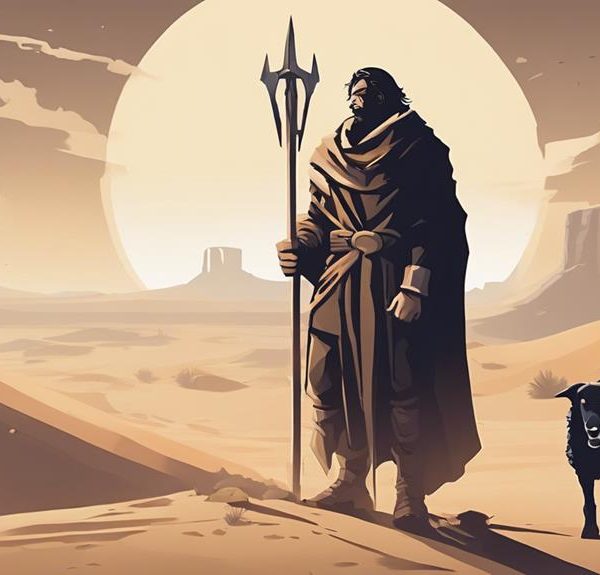

Sign up